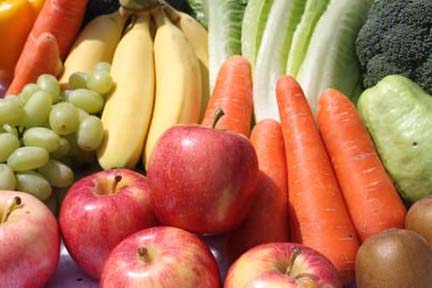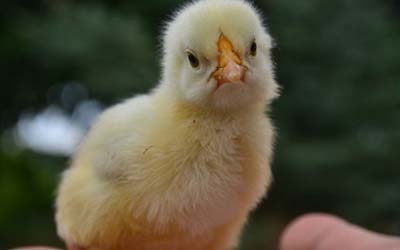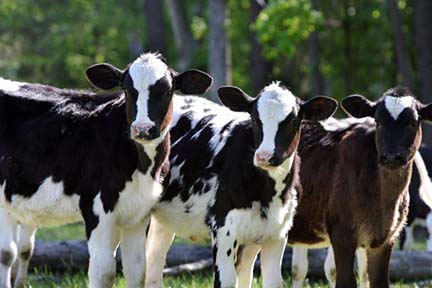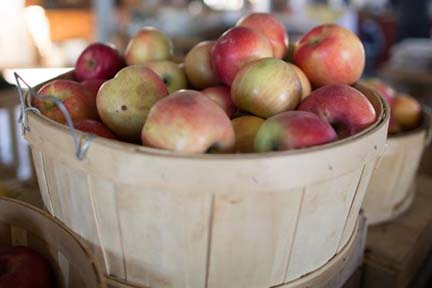
Michigan Sets New Record for Food, Ag and Forestry Exports
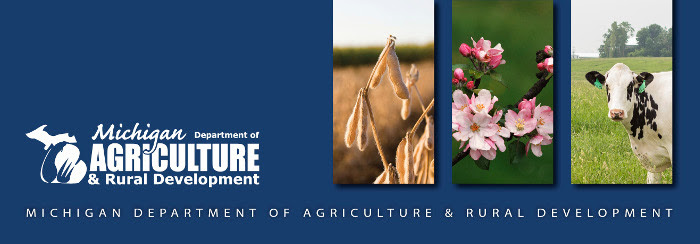 |
| FOR IMMEDIATE RELEASE: March 19, 2025
Media contact: Lynsey Mukomel, 517-290-1734 Program contact: Trevor Keyes, 517-237-1701 Michigan Sets New Record for Food, Ag and Forestry ExportsTo mark National Agriculture Trade Day, MDARD shares exports reached nearly $3B last year LANSING, Mich. – Michigan Department of Agriculture and Rural Development (MDARD) Director Tim Boring announced today that the state’s ag-related exports set a new record in 2024, reaching $2.9 billion. The new benchmark was released to mark National Agriculture Trade Day and represents a more than $282 million increase from 2023. “Michigan farmers, food, and forestry workers are the best in the world,” said Governor Gretchen Whitmer. “Our $2.9 billion in ag-related exports last year demonstrate that Michigan is the best place to grow and harvest products like sugar beets, soybeans, dairy, and wood. I’m committed to supporting local communities across Michigan, with investments to support farmers, build agricultural diversity, and grow economic opportunity and rural prosperity. Let’s keep getting it done.” “From urban farms in Detroit to the cherry orchards Up North, there’s something for everyone here in Michigan,” said Lt. Governor Garlin Gilchrist II. “The $2.9 billion in agricultural exports Michigan produced last year is a sign of our economic momentum, growing rural prosperity, and dominance as the most agriculturally diverse state with access to 20% of the world’s fresh water. Every Michigander in every corner of our state should be able to be their best selves and reach their full potential, and Governor Whitmer and I are committed to supporting local communities. Let’s keep standing tall for Michigan food, farmers, and forests.” “This record-breaking success for our agriculture, food and forestry companies proves Michigan ag brings high-quality products to the table that are in high demand domestically and internationally,” said MDARD Director Tim Boring. “With so much uncertainty caused by new tariffs, these record numbers serve as an example of the economic prosperity we can foster with the right support and a level playing field. We’re proud to support Michigan farmers and producers as they expand their markets.” Michigan is the most agriculturally diverse state with regular access to water, resulting in a wide range of exported products. From bulk corn to snack products, dried fruit and dairy products, the goods produced in Michigan vary greatly. The demand for high-quality Michigan products continues to grow in local, domestic and international markets. Overall, processed food products represented the highest total value of Michigan’s food, agriculture, and forest products in 2024 at $636 million. The other top categories are sugar beet, soybean, soybean residue, brewing waste and animal feed at $393 million, dairy products at $303 million, pasta, bread and other starches at $285 million, and wood and articles of wood at $252 million. The top five export markets for Michigan’s ag-related products in 2024 were Canada at $1.25 billion, Mexico at $452 million, South Korea at $174 million, Japan at $154 million, and China at $150 million.
Visit Food Export’s event page for a full list of the International Marketing Program’s events and visit our website to learn more about how the International Marketing Program helps businesses in Michigan. |

 MDARD’s International Marketing Program works to assist Michigan food, agriculture, and forestry businesses in developing domestic and international market opportunities. These opportunities include trade shows, buyers missions, trade missions, market research, and more. Events such as the
MDARD’s International Marketing Program works to assist Michigan food, agriculture, and forestry businesses in developing domestic and international market opportunities. These opportunities include trade shows, buyers missions, trade missions, market research, and more. Events such as the 